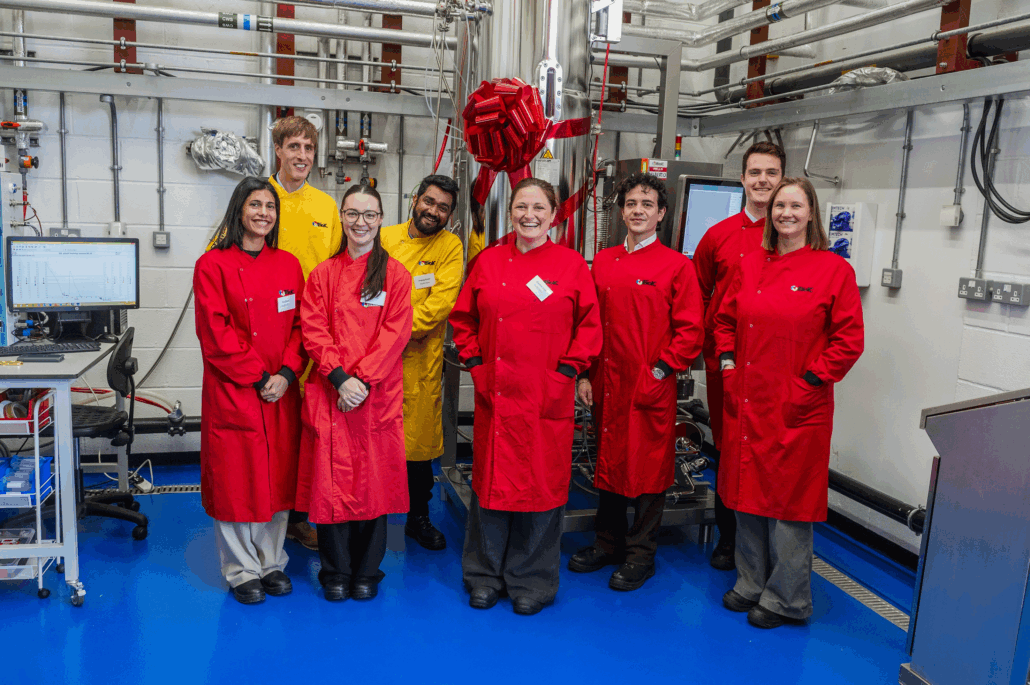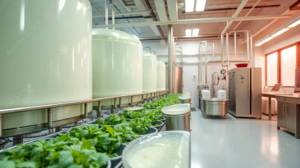
Scotland’s bioeconomy gets scale-up boost
Scotland’s biotechnology sector is celebrating a major milestone with the launch of the nation’s first open-access 300-litre fermenter – a state-of-the-art piece of equipment that will support early-stage companies to develop bio-based products at scale.
Located at FlexBIO, the Industrial Biotechnology Innovation Centre’s (IBioIC) scale-up facility at Heriot-Watt University in Edinburgh, installation of the new fermenter was made possible by a £847,000 grant from Scottish Enterprise, Scotland’s national economic development agency.
The investment expands IBioIC’s scale-up capabilities significantly, increasing upstream bioprocessing capacity tenfold – from 30 litres to 300 litres. The pilot-scale fermenter – a type of bioreactor used to cultivate microorganisms – offers a crucial bridge between lab-scale development and full-scale production, allowing businesses to conduct trials without disrupting their day-to-day operations or bearing the high cost of purchasing the expensive equipment themselves.
This summer the new government of the UK is expected to outline details of its £2bn scale-up strategy in engineering biology to transform fossil-based to biology-based production of goods such as energy, biofuels, chemicals, compostable plastics and fibres, microbial bioleaching of critical resources as well as food and feed.
Futhermore EU member states Italy, France, Denmark and The Netherlands have made huge funding commitments to position their industries in the global billion dollar race of sustainable biomanufacturing after market leader US has quit the game.
On 2nd June, led by Belgian scale-up facility BioBase Europe, the Biopilots4EU consortium has updated its EU-wide registry of scale-up facilities across Europe.
Products created through biological processes instead of petrochemicals provide a sustainable alternative to traditional manufacturing and have already reached price parity. However, translating lab-based science into industry-ready processes remains a major challenge for engineering biology specialist. The high cost of infrastructure, – up to €250,000 per facility – such as large-scale fermenters, is one barrier. Regulatory restraints and a lack of experts is another. FlexBIO helps to bridge both gaps by offering access to equipment and technical know-how under one roof.
Addressing this well-recognised ‘valley of death’ in industrial biotechnology has become a strategic investment focus for the Scottish Government and a central element of the nation’s commitment to reaching net zero by 2045.
Mark Bustard, CEO of IBioIC, said: “The new fermenter will provide a significant boost for Scotland’s bioeconomy.”
European Biotechnology is coming up with a special on scale-up biomanufacturing sites and CDMOs in its June issue. More info here.


 adobe.stock.com - Cathy
adobe.stock.com - Cathy www.gov.uk
www.gov.uk Audiovisual Library of the European Commission
Audiovisual Library of the European Commission